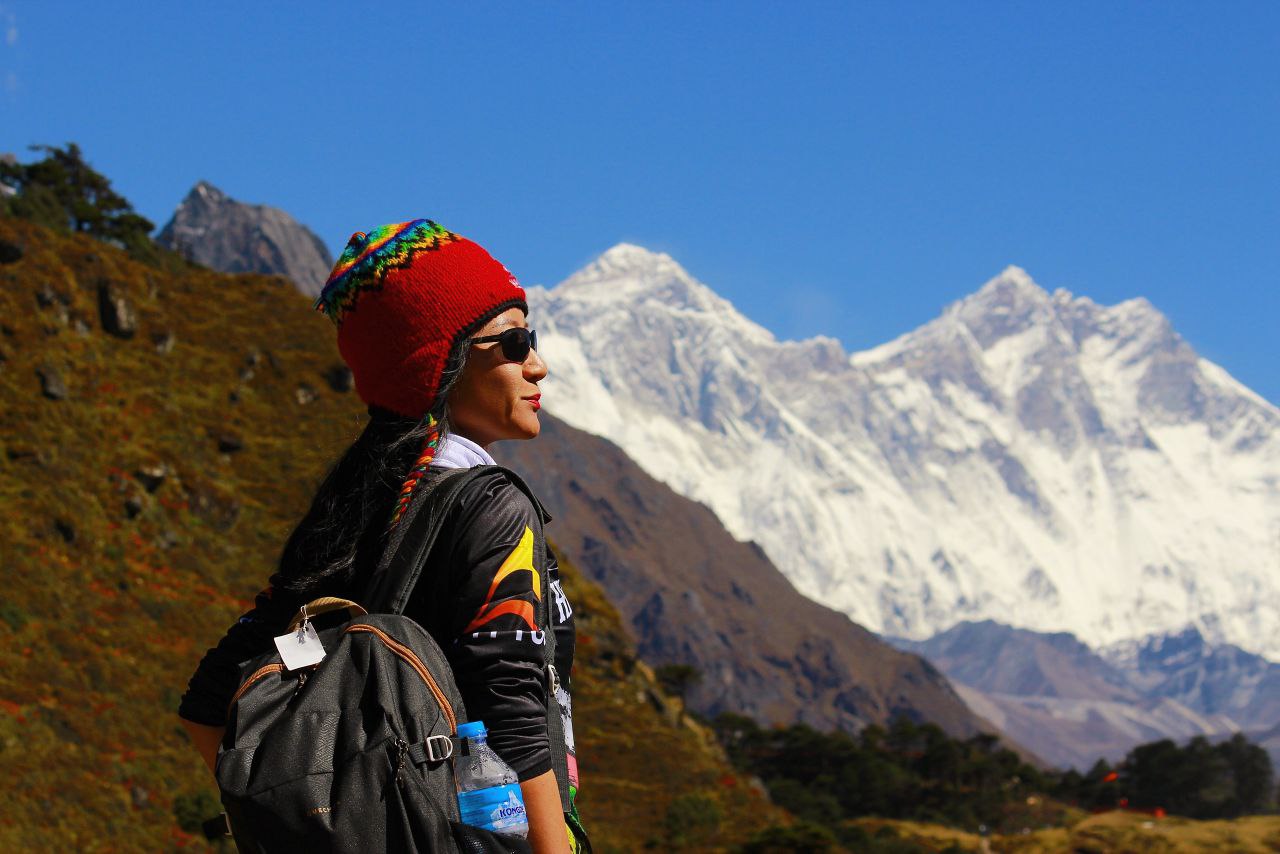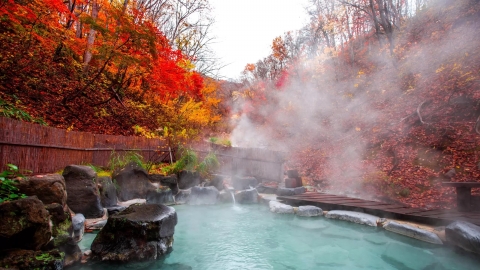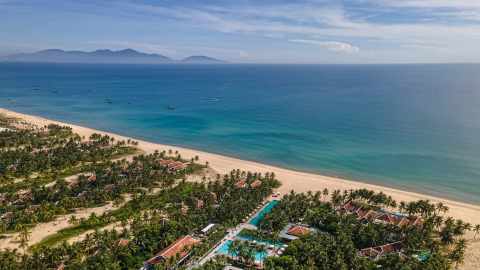Thanh Hang, an office worker in Ho Chi Minh City, said she recently successfully conquered Everest Base Camp with very little preparation time. Speaking to Travellive, she learned that many experienced mountaineers had advised her to prepare for six months to build her physical fitness. However, Thanh Hang only had a mere two weeks before the trip to thoroughly prepare everything.
"It was amazing. The moment of reaching the milestone was very touching, and honestly, I just wanted to go back to Vietnam right after that moment because I was so tired," Thanh Hang replied when asked about her feelings at the end of the trip.

Lift weights to improve endurance.
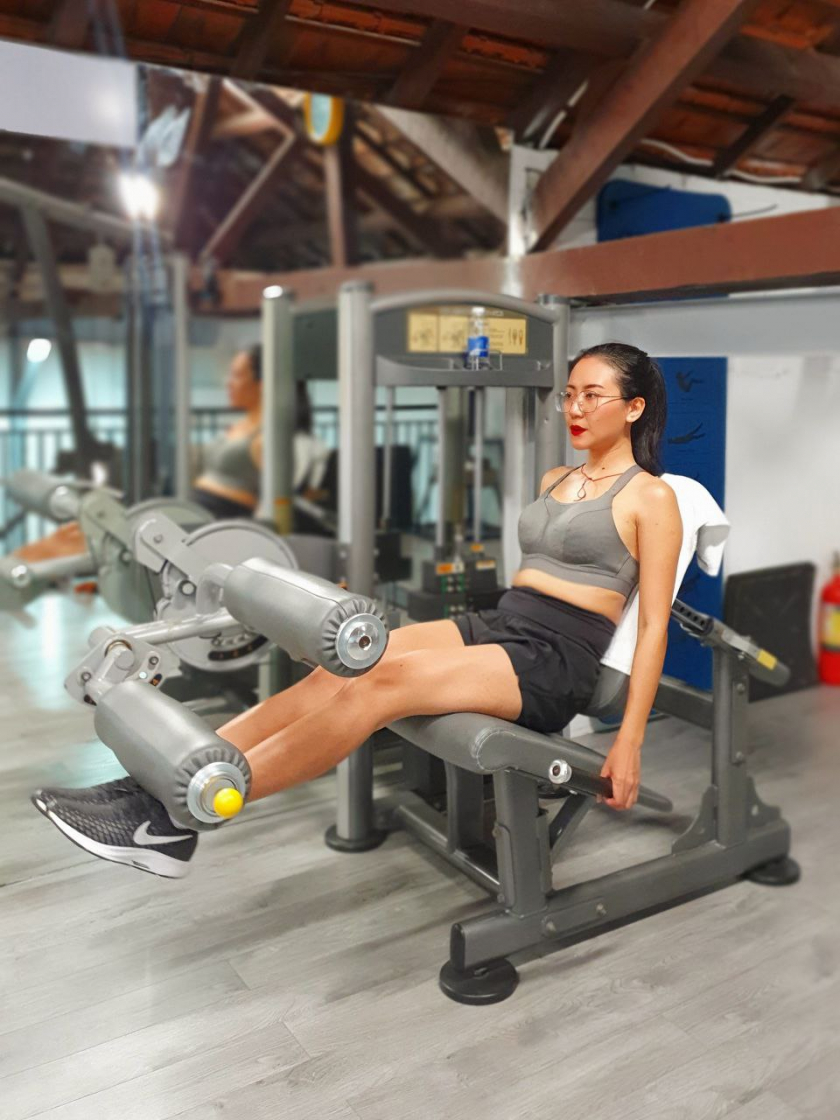
Thanh Hang is working out her lower body to prepare for the mountain climbing trip.
Based on her own experience, Hang believes that October and May are the peak climbing seasons in Nepal. May is warmer but also more crowded because it's when professional climbing groups arrive. She chose October because, although the temperature is a little colder, it's generally less crowded than May.
In the two weeks leading up to her trip, Thanh Hang maintained a consistent daily workout routine. Each day, she dedicated 15-30 minutes to jogging or walking on steep inclines like stairs. Afterward, she focused on lower body exercises like squats and deadlifts to strengthen her thigh and calf muscles. She also did cardio to improve her fitness. Finally, she practiced breathing exercises to cope with the long journey and the weather.
"You shouldn't overexert yourself or challenge your endurance because an injury during training could affect your upcoming trip," Thanh Hang shared.
Besides physical training, preparing oneself mentally is also important. Thanh Hang tries to maintain a relaxed state of mind while preparing for other steps. She believes that Everest Base Camp is not as complicated or dangerous as conquering Mount Everest; it's a commercial trekking route, so rescue facilities are relatively well-equipped.
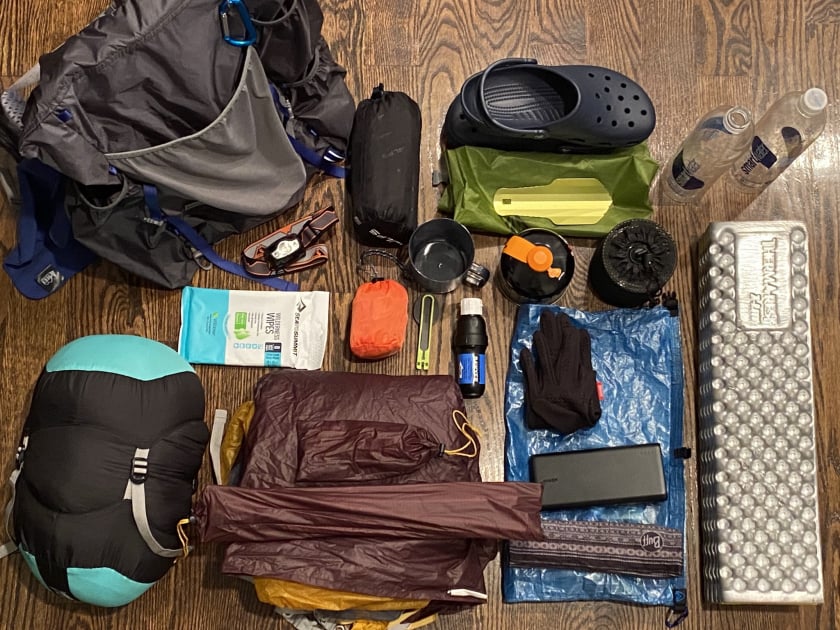
Sleeping bags, hair dryers, sanitary pads to put in your shoes... these are items you should bring to cope with harsh weather.

Always carry altitude sickness medication, vitamins, cough medicine, and cold medicine to help you adapt to cold weather conditions.
"The important thing is to focus on your goal. If you're tired, slow down because this isn't a race against others, but a battle to conquer yourself, so sooner or later you'll get there," this office worker commented.
Before departure, travelers should take the time to research online and consult the tour company's guide on what items to bring. The most essential items are warm clothing and scarves. In particular, travelers should bring special medications such as: altitude sickness medication, fever reducers, cough medicine, cold medicine, and vitamin supplements. Note that these should be water-soluble.
When asked about guidelines for dealing with altitude sickness, Thanh Hang said there is virtually no way to treat it while climbing. Tourists are forced to descend rapidly by helicopter. The cost of helicopter transport ranges from $500 to $600. If they do not descend rapidly, the condition will worsen, leading to pulmonary or cerebral edema and death shortly afterward.
Therefore, mountaineers should take altitude sickness medication (barrier medication) about a day before starting the trip and continue taking two tablets daily until the trip is completed.
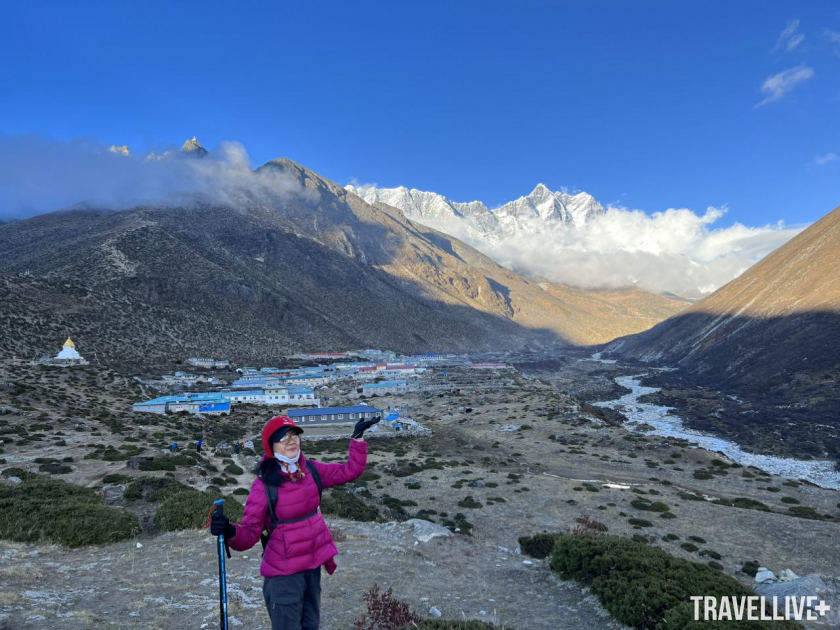
With just two weeks of preparation, Thanh Hang conquered Everest Base Camp.
"When taking blood pressure medication, you may experience symptoms such as numbness in your hands and feet, and dizziness, but rest assured that these are normal signs as the medication takes effect. You should drink plenty of water and eat bananas to replenish potassium. These symptoms will lessen once you reach a higher altitude," Thanh Hang explained.
A suitable backpack for the entire mountain climbing trip should be carefully chosen. According to Thanh Hang, when climbing, tourists only need to carry a small backpack (with support straps) of about 20 liters. Inside this backpack, keep essential items such as medicine and water.
"You should keep your luggage to a minimum because a heavy backpack can affect your breathing. Someone else will help you carry the rest," Hang said.

 VI
VI EN
EN



